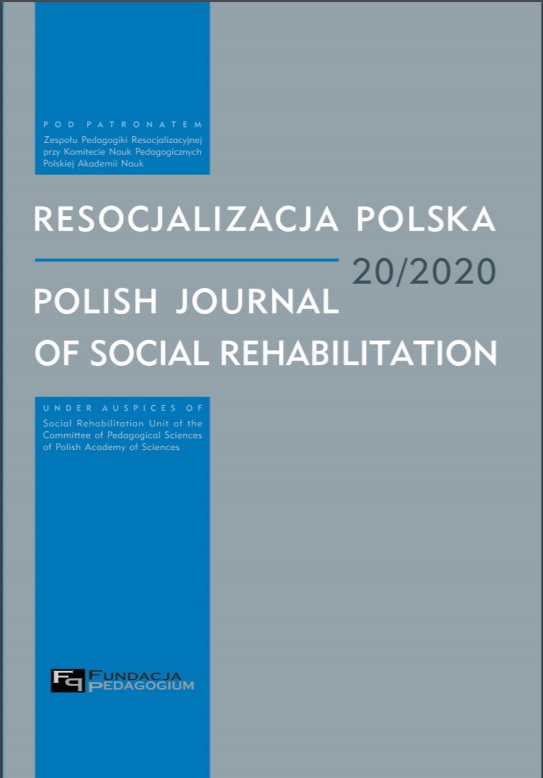The Loser Syndrome – universality of the strategy of defense of discriminated groups
The Loser Syndrome – universality of the strategy of defense of discriminated groups
Author(s): Irena PospiszylSubject(s): Social psychology and group interaction
Published by: Fundacja Pedagogium
Keywords: victims; loser syndrome; oppressive situation; social minority; symptoms of the loser syndrome; humiliation; scapegoat; long-term oppressive situation
Summary/Abstract: If one assumes, like Mayer Hacker, that a social minority is a group of peoplewho, because of their physical or cultural characteristics, are not treated as equal to othergroups in a given society, then it turns out that many groups meet these criteria. In theprison subculture they are met by „losers,” in the macro-social space – by all minority groupssuch as national, ethnic, racial minorities, but also women and some religious minorities.It is surprising that although these groups often have comparable numerical, physical, orintellectual strength to that of the mainstream group, they are unable to obtain equaltreatment, respect, and all the privileges that this entails. This is probably due to a numberof factors, including tradition, cultural capital, resources, and culturally established institutionspromoting specific social groups. However, an equally important determinant is the ownactivity of individuals forming a minority group, and their ability to integrate and consolidatewith their own group. Among others, the following contribute to this: lack of intra-groupsolidarity, orientation towards the dominant group, excessive guilt, contempt for one’s owngroup etc.The article deals with the barriers inherent in the minority groups themselves, which contributesignificantly to the consolidation of their unfavorable status. The size and scale of thesebarriers contribute to the status that I call the loser syndrome. It is also important that thefactors limiting the expansion of minority groups are similar in most minority groups. Theyare characterized by a certain universality.
Journal: Resocjalizacja Polska
- Issue Year: 20/2020
- Issue No: 1
- Page Range: 87-104
- Page Count: 18
- Language: English

